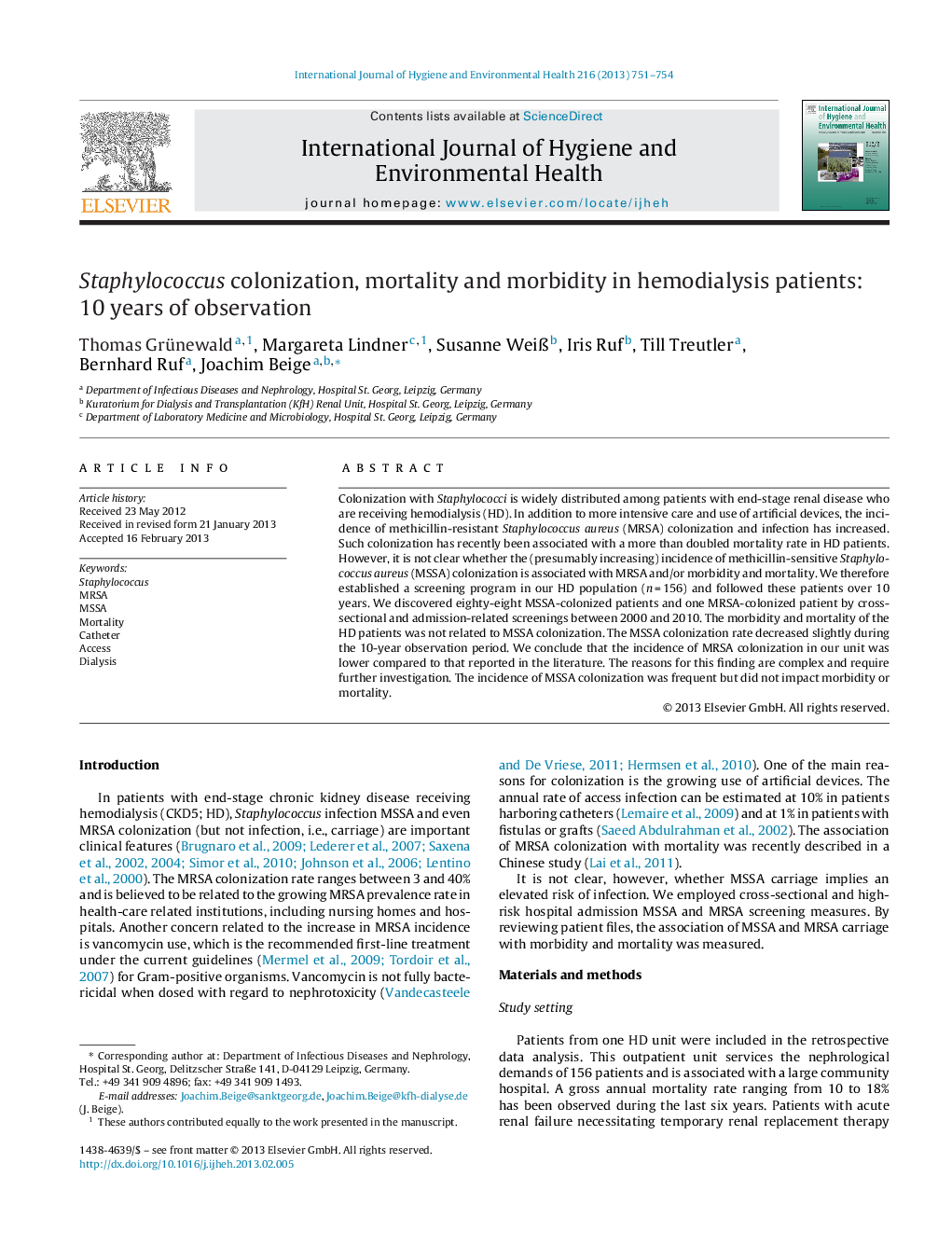| Article ID | Journal | Published Year | Pages | File Type |
|---|---|---|---|---|
| 2588516 | International Journal of Hygiene and Environmental Health | 2013 | 4 Pages |
Colonization with Staphylococci is widely distributed among patients with end-stage renal disease who are receiving hemodialysis (HD). In addition to more intensive care and use of artificial devices, the incidence of methicillin-resistant Staphylococcus aureus (MRSA) colonization and infection has increased. Such colonization has recently been associated with a more than doubled mortality rate in HD patients. However, it is not clear whether the (presumably increasing) incidence of methicillin-sensitive Staphylococcus aureus (MSSA) colonization is associated with MRSA and/or morbidity and mortality. We therefore established a screening program in our HD population (n = 156) and followed these patients over 10 years. We discovered eighty-eight MSSA-colonized patients and one MRSA-colonized patient by cross-sectional and admission-related screenings between 2000 and 2010. The morbidity and mortality of the HD patients was not related to MSSA colonization. The MSSA colonization rate decreased slightly during the 10-year observation period. We conclude that the incidence of MRSA colonization in our unit was lower compared to that reported in the literature. The reasons for this finding are complex and require further investigation. The incidence of MSSA colonization was frequent but did not impact morbidity or mortality.
